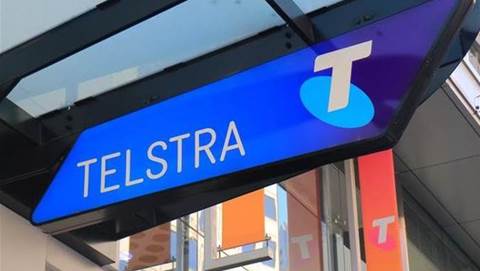Australia’s biggest carriage service providers are pushing back against Foxtel and Roadshow’s efforts to implement a rolling injunction for piracy sites to stop them from reappearing under new domain names.

Rights holders today lobbied the federal court to introduce an order that would cover any mirror sites that pop up after a particular URL or domain name is blocked.
Foxtel and Roadshow argued the cost and administrative burden of having to return to court each time a secondary site appears would be too great.
They instead want the ability to issue out-of-court notices to carriage service providers each time they discover a mirror version of a blocked site.
“We’d see the new domain name pop up. We’d find some technical person to find the IP address associated with that domain name, that person would do a WhoIs search to identify the geographical location of where that digital content is being provided from,” counsel for the rights holders Richard Lancaster said.
“It will almost certainly be from overseas. The [rights holders] then tell the [CSPs] this is an alternative accessway to the content, then within 15 days it gets added to the list of secondary sites CSPs must block.”
But Telstra, Optus, TPG and M2 argued rights holders should have to refer back to the court for an additional order for each new mirror site that appears.
Telstra counsel said the work required to send a document to the court detailing mirror sites would not be much greater than what rights holders would have to do internally for an out-of-court notification to CSPs.
However, Lancaster argued the approach would result in “additional cost, delay and inefficiency” in enacting the blocks.
“This .. is a known problem in the real world. It will be a problem that arises in the implementation of your honour’s orders. And we’re concerned - given this is the first case [of the legislation] - that a procedure be adopted that will not create a real administrative burden for the future in having to do something unnecessary and elaborate such as the CSPs suggest.”
A rolling injunction would not open the carriage service providers to any greater risk of liability from users given a secondary site block would fall under the ambit of the original block order, Lancaster argued.
He cited a similar scheme in the UK which allows for any other URLs or IP addresses whose “sole and predominant purpose is to enable or facilitate access to the website” to be blocked.
“They [CSPs] don’t have to do anything. There’s no jurisdictional problem, there’s no liability problem for the respondents, and in any event if anyone gets wind of a problem, in the unlikely event there is one, it can very quickly be brought back to court to resolve it on the evidence,” Lancaster said.
“It’s not a proportionate response to the likelihood that these secondary sites will be popping up for the copyright owners to be required to brief lawyers, pay them to prepare an affidavit, file it and serve it and so on. An out of court notification is sufficient by way of technical notice and practical operation.”
Who pays?
Both parties continue to butt heads on who should pay the costs associated with implementing a site block.
The telcos want rights holders to foot the bill for compliance with the legal order, while Foxtel and Roadshow argue they shouldn’t need to bear the costs of enforcing their legal rights.
Telstra put its cost of DNS blocking for 61 domain names at around $1500. Costs per CSP range wildly.
“In England the rights holders don’t have to pay for implementation because it’s regarded as being part of the business of carrying out the business of an ISP,” Lancaster said.
“The [rights holders] can’t control the cost of implementation. If the CSPs bear the cost, that will encourage the most efficient and cost effective way of blocking. It’s appropriate that if the law requires that illegal or infringing content be blocked or stopped, and that requires some action on the part of CSPs, they should bear those costs.
“They are large, successful and wealthy organisations. The costs are minimal and proportionate. And they can comfortably bear them.”
He argued other rights holders would ultimately benefit from the blocking orders, making it unfair to force Foxtel and Roadshow to pay for block implementation.
Foxtel and Roadshow also don’t agree they should pay for the cost of the legal proceedings, as the CSPs have requested.
“They’re the ones that turned it into a contested hearing, putting on evidence and rounds of hearings,” Lancaster said.
The hearings continue.




















